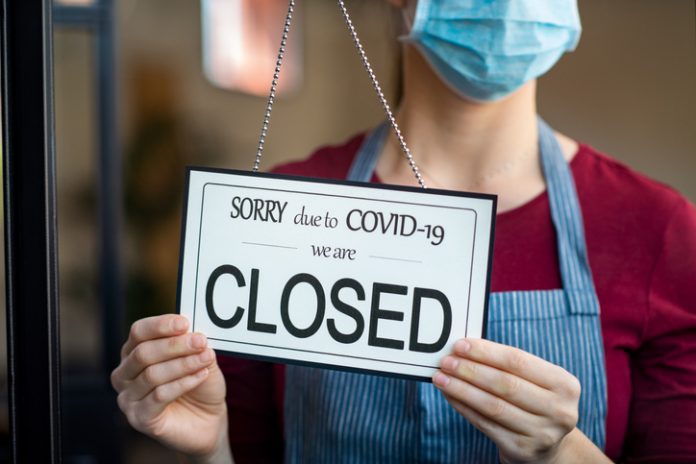A meta-analysis published by the Johns Hopkins Institute for Applied Economics found a variety of restrictions to stop deaths from COVID-19 had little to no effect and instead caused more damage by imposing “enormous economic and social costs.”
Economists Jonas Herby, Lars Jonung, and Steve H. Hanke, a policy advisor to The Heartland Institute, which co-publishes Health Care News, set out to review the empirical evidence on the effectiveness of lockdown measures. They defined a lockdown as a government mandate restricting activity, such as travel bans; school and public facility closures; facemask requirements, and limits on crowds.
Using a “systematic search and screening” process, the authors sifted through 18,590 studies that potentially “support the belief that ‘lockdowns reduce COVID-19 mortality.’” The team selected 24 studies which they put in three topical groups: lockdown stringency indices, shelter-in-place orders; and specific non-pharmaceutical interventions.
“An analysis of each of these three groups supports the conclusion that lockdowns have had little to no effect on COVID-19 mortality,” write the authors.
Further, the analysis determined strict lockdowns in Europe and the United States reduced mortality by a mere 0.2 percent compared to similar virus control measures that were recommended but not mandated.
“Lockdown policies are ill-founded and should be rejected as a pandemic policy instrument,” concludes the report.
Other Measures, Not Much Better
Shelter-in-place orders were not much more effective than compulsory, non-pharmaceutical interventions, reducing mortality by 2.9 percent. Closing non-essential businesses reduced COVID-19 deaths 10.6 percent but the effect was likely due to the closure of bars. Border closures had a 0.1 percent impact, school closures, a negative 4.4 percent effect, and the impact from limiting gatherings reduced deaths by 1.6 percent. The authors state there wasn’t enough evidence to examine the impact of universal mask mandates.
One reason lockdown measures are relatively useless is the natural behavioral response of people when faced with risk, state the authors.
“…[P]eople respond to dangers outside their door,” they write. “When a pandemic rages, people believe in social distancing regardless of what the government mandates.”
The authors also note the limitations of enforcement.
“…[M]andates only regulate a fraction of our potential contagious contacts and can hardly regulate nor enforce handwashing coughing etiquette, distancing in supermarkets, etc.,” the authors write.
‘Follow the Science’
The Johns Hopkins research is consistent with other reports, says Jeffrey Tucker, founder, and president of the Brownstone Institute.
“This meta-analysis is very compelling and only the latest of perhaps 150 or [so] studies of particular cases that have shown no relationship between restrictions and virus outcomes,” said Tucker.
“This has been the persistent result of every quality study for some 20 months now, and true in every country,” said Tucker. “It’s remarkable how a series of unprecedented policies enacted in the name of science could so thoroughly fail to pass a scientific examination of their efficacy.
“When these studies started coming out in late spring 2020, I had assumed that governments would follow the science,” said Tucker. “Instead, they adhered to their failed paradigm, with enormous social, cultural, economic, and public health costs.”
AnneMarie Schieber (amschieber@heartland.org) is the managing editor of Health Care News
Internet info:
Jonas Herby, Lars Jonung, Steve Hanke, “A Literature Review and Meta-Analysis of the Effects of Lockdowns on COVID-19 Mortality,” Johns Hopkins Institute for Applied Economics, January 2022.





















